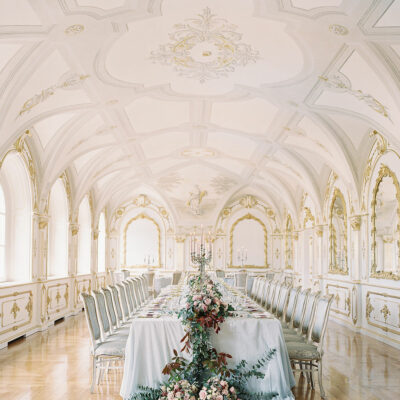 How do you get legally married in Italy for a destination wedding?
How do you get legally married in Italy for a destination wedding?
How to plan a wedding in Thailand from Australia

Thailand’s got it all: stunning islands, crystal-clear turquoise seas, rich culture, authentic dining experiences, and world-class spa services. It’s little wonder why many couples are choosing to say ‘I do’ in such a paradise.
If you want to also get married in Thailand, it helps to know what to expect. But where do you even begin? Between choosing the right season, narrowing down locations, and locking in local suppliers, planning a wedding in Thailand from Australia (or anywhere else!) can feel overwhelming.
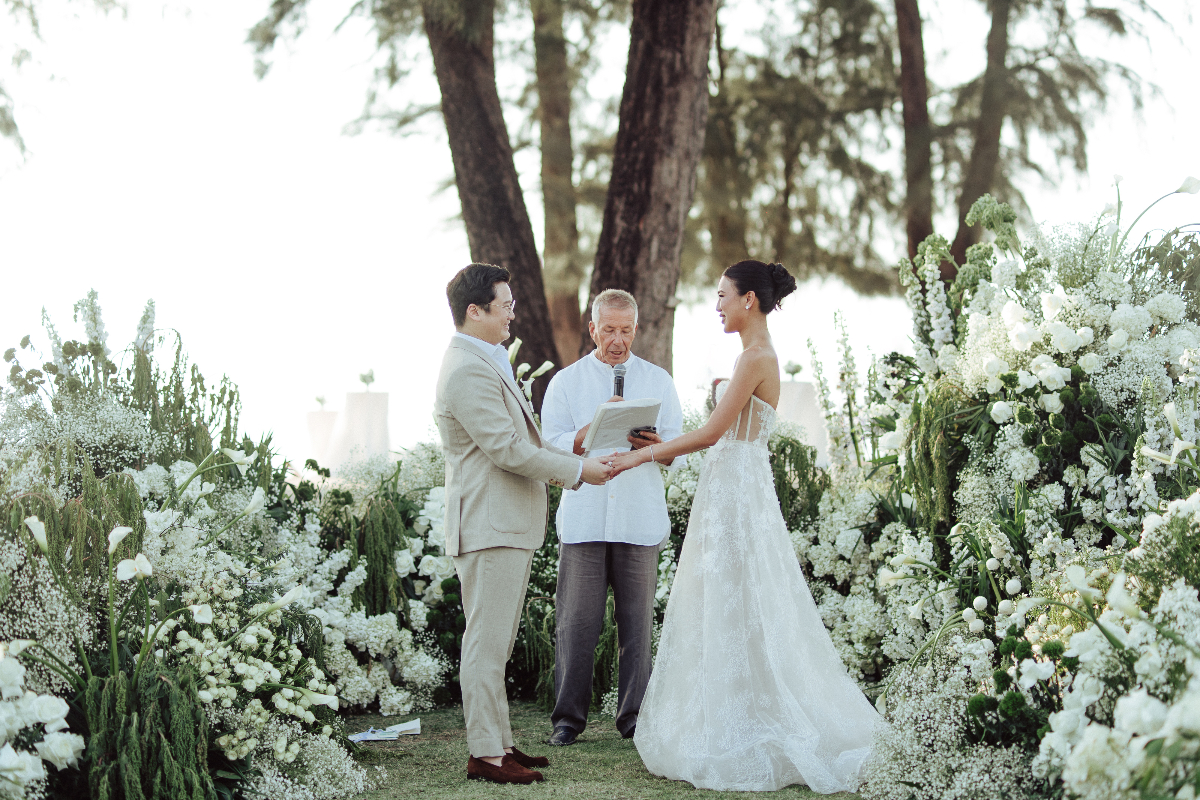
Planning a wedding in Thailand? Amora Beach Resort Phuket has it all.
That’s where our guide comes in: covering everything you need to know to bring your destination wedding in Thailand to life, without the stress.
Here’s everything you need to know to plan a destination wedding in Thailand.
The best time to marry in Thailand
Couples choose to get married in Thailand for its stunning outdoor venues, so the weather can make or break the experience. The best time to get married in Thailand is during the cool, dry season from November to February. With lower humidity, these months offer ideal weather conditions for destination weddings.
Alternatively, you can consider the shoulder seasons: March to May (summer) and September to October (monsoon). These months tend to be quieter and easier on the budget, but they come with hotter temperatures and higher chances of rain. It’s also worth noting that weather patterns in Thailand vary by region – once you’ve chosen the exact location, make sure to check the local climate before setting the date.
Popular locations for destination weddings in Thailand
When you picture Thailand, a variety of images likely come to mind: whether it’s the white-sand beaches of Phuket, the lush hills of Chiang Mai, or the vibrant energy of Bangkok. One of Thailand’s greatest charms is the unique culture and character found in every region. This means your ideal wedding location will depend on your vision, guest list, and budget.
Are you after something luxurious, intimate, or modern? Here’s a quick guide to some of the most popular destinations in Thailand and what they’re known for:
- Phuket: World-class resorts, dramatic sunsets, and pristine beaches
- Chiang Mai: Surrounded by mountain landscapes, traditional Lanna architecture, and Buddhist temples
- Hua Hin: A relaxed seaside escape with royal heritage and charming beachfront venues
- Koh Samui: Recently featured in the Hollywood series The White Lotus, Koh Samui is a tropical island paradise with luxury villas and lush jungles
- Bangkok: A bustling city that blends the local culture with contemporary urban energy
Incorporating Thai traditions into your ceremony
Thailand has a rich cultural heritage, and many wedding venues offer the option to include local customs in your wedding. Incorporating traditional Thai elements into your ceremony may add more meaning to your celebration and also honour the local culture in a respectful way.
Traditional Buddhist blessing ceremony
In this ceremony, Buddhist monks chant prayers and offer blessings to the couple, wishing them good fortune, happiness, and prosperity in their marriage. The ceremony typically begins with the couple presenting offerings to the monks, followed by the chanting of scriptures. A symbolic thread, known as sai mongkhon, is often used to link the couple’s heads to signify their spiritual union.
Hae Kaan Maak – Traditional long drum parade with silver and gold gate passing
The Khan Maak procession marks the beginning of the engagement ceremony in a traditional Thai wedding. Accompanied by long drums and folk dancers, the groom leads a parade to the bride’s residence to present traditional offerings that symbolise prosperity and commitment. Upon arrival, the groom and his party encounter the symbolic “silver and gold gates”, which represent challenges or tests set by the bride’s family and friends. The groom must offer his tokens or perform specific tasks to demonstrate his dedication and readiness for marriage.
Rod Nam Sang – Traditional Water Blessing Ceremony
Rod Nam Sang, or the water pouring ceremony, is a special ritual where guests pour water over the couple’s hands to offer blessings and good wishes for their future. The ritual typically begins with the most senior or elderly guests and continues in order of age or relationship to the couple.
If you’re unsure about incorporating any of these ceremonies, our destination wedding coordinators can guide you through the customs to ensure they’re honoured respectfully and meaningfully.
The process of legal marriage in Thailand
For Aussie couples planning an overseas wedding, our top advice is simple: handle the legalities back home before catching that flight. This allows you to skip the paperwork stress and fully enjoy your symbolic ceremony with a celebrant of your choice.
Since it’s not legally binding, you can even bring an Aussie celebrant if you like. That said, you can still legally marry in Thailand (just be prepared for a detailed process and a bit of legwork).
Before your flight:
Gather the following documents:
- Valid passports
- Birth certificates
- Divorce/ death certificates (if applicable)
- A completed Affirmation of Freedom to Marry or Statutory Declaration
You’ll also need to check whether a DFAT authentication or Thai translation is required for your documents.
After arriving in Thailand:
- Visit the nearest Australian Embassy or Consulate-General in your destination to have your Affirmation of Freedom to Marry witnessed and stamped
- Translate the Affirmation into Thai (if not already done), then take the documents to the Thai Ministry of Foreign Affairs for legalisation
- Visit the local district office (Amphur or Khet) with your partner to officially register the marriage under Thai law. This is when your legal marriage ceremony can take place
Legal processes can change over time, so it’s important to double-check all requirements. Refer to official sources like the Australian Embassy Thailand, Department of Foreign Affairs and Trade (DFAT), Smartraveller, or relevant Thai authorities.
Are Thai marriages acknowledged in Australia?
Yes! As long as your marriage is valid under Thai law and properly registered, it is legally recognised in Australia. You don’t need to re-register the marriage in Australia, but you may consider getting an official English-language marriage certificate for future use.
Timeline & cost breakdown for weddings in Thailand
It’s ideal to start planning your wedding 12-18 months in advance. This time frame usually involves venue research, securing bookings, and consultation with the wedding planners. And then, depending on whether you want to conduct your legal ceremony in Australia or Thailand, you’ll need to gather the right documents and follow all the paperwork procedures at least 3-6 months before the date.
Legal documentation and processing fees
- Preparation and issue of a Certificate of No Impediment to Marriage (CNI): AUD 177
- Certified translation of documents into Thai: Depending on your translation provider, translation fees typically start from AUD 50 per page
- Legalisation of documents at the Thai Ministry of Foreign Affairs: Approx. THB 200–800 per document (AUD 10-38)
- Marriage registration fee at the local district office (Amphur): Approx. THB 400 (AUD 18)
Venue and vendor fees
Our recent survey found that venue packages for destination weddings start from around $300 per guest. Depending on the country, overseas wedding planners generally charge under AUD 5,000 for comprehensive services. If you only need a coordinator for legal assistance, the cost is likely to be lower. For simpler planning, you can hire an Australian-based wedding team (like us)!
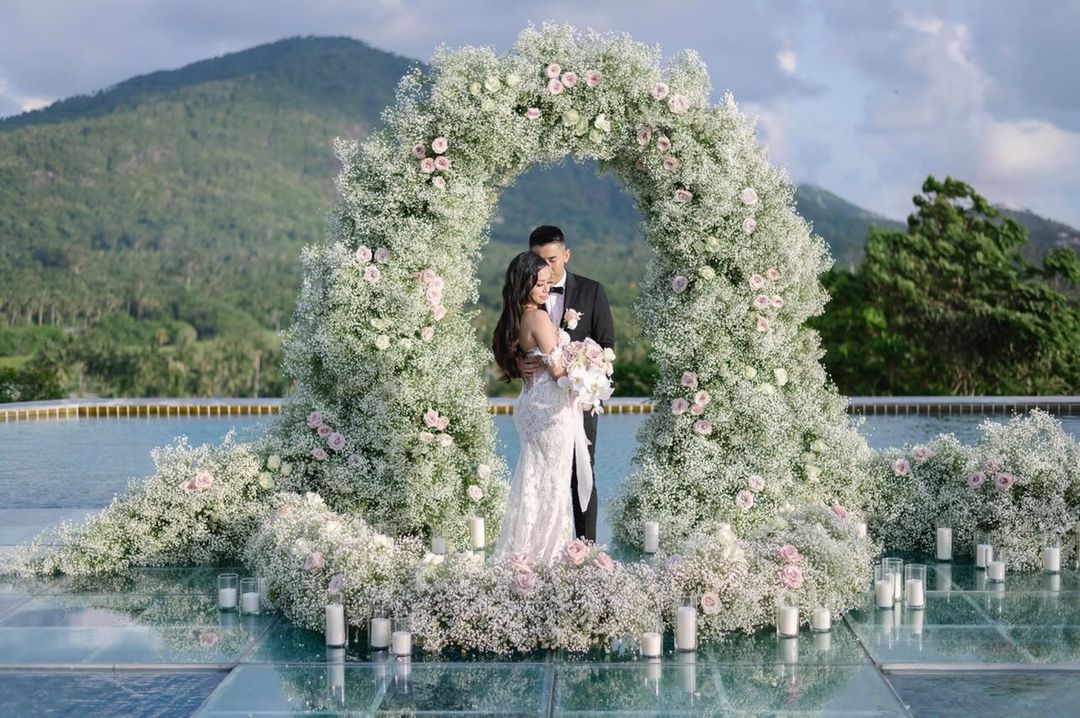
Planning a wedding in Thailand? We can help.
Our destination wedding packages take the stress out of planning from overseas. From venues and styling to trusted photographers, makeup artists, and celebrants, we’ll connect you with everything (and everyone) you need to bring your day to life.
Talk to us today about our stress-free destination wedding packages in Thailand.
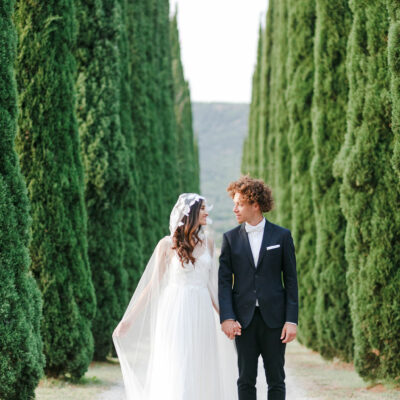 What part of Italy is best for a destination wedding?
What part of Italy is best for a destination wedding? 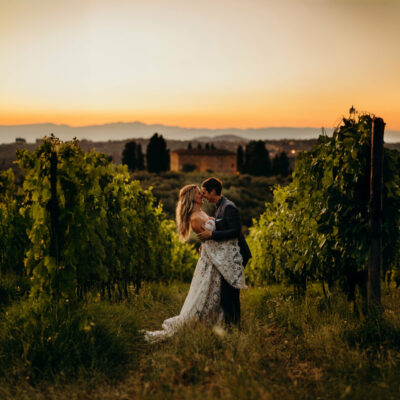 What’s the best time of year for an Italy wedding?
What’s the best time of year for an Italy wedding?